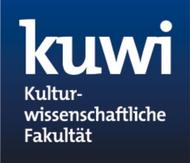Projects
Current projects
The Jean Monnet Policy Network "ValEUs" focuses on investigating the foreign policy of the European Union (EU) and the attacks on its values. It aims to identify contradictions between the ("European") values promoted by the EU and how these values are implemented in the EU's actions. This question is being addressed by a research network led by the European University Viadrina Frankfurt (Oder), which has been funded for three years starting in January 2024. The project involves 20 partner institutions from 17 countries across five continents.
For more information, please visit the project website or see the bottom of this page.
MORES is a Horizon Europe project that aims to investigate how moral emotions, especially positive ones, contribute to the stabilisation of political identities and how they, especially negative ones, trigger division and polarisation. MORES seeks to better understand the political role of moral emotions in order to develop a normative-analytical framework to inform democratic decision-making on how moral emotions should interact with values, policies and political practices. Within the project, Timm Beichelt and Daniel Illger enquire into the display and construction of emotions in TV series with political content.
For more information, please visit the website of the HUN-REN Centre for Social Sciences or see the bottom of this page.
More about ValEUs
Project description
The international research initiative led by the European University Viadrina Frankfurt (Oder) aims to analyse the challenges currently facing the European Union (EU) and explore potential counter-strategies. The project titled "ValEUs. Research & Education Network on Contestations to EU Foreign Policy" is funded by the EU Commission as part of the Jean Monnet Policy Network (JMPN) for three years starting from January 2024, with a budget of 1.2 million euros.
20 partner institutions from 17 countries on five continents are participating in this ambitious research project on EU foreign policy. Prof Dr Timm Beichelt, Viadrina Professor of European Studies and head of the network, emphasises the need to examine whether the EU adheres to the values it prescribes for itself and others. Issues such as migration, asylum policy and the EU enlargement process are emphasised as possible areas of systematic deviation from established normative standards.
The "ValEUs" network undertakes joint interdisciplinary research projects, engages in teaching formats and offers a platform for professional exchange with conferences, summer schools and a large-scale online course. In addition, the project consortium aims to initiate social debates and develop recommendations for political actors and civil society.
It is not just about the violation of European values from the outside. We are also particularly interested in whether and how the EU deviates in its behaviour from values that it has prescribed for itself and others.
Prof Dr Timm Beichelt
More information
More about MORES
Project Description
How can a democratic society address the rhetoric of politicians who exploit emotions such as anger, contempt or pride for political division on the one hand, and engage in rational deliberation without citizens becoming emotionally alienated from democratic institutions on the other? To investigate this question, the HUN-REN Centre for Social Sciences in Budapest has launched an ambitious research initiative.
The project "MORES. Moral Emotions in Politics – How They Unite, How They Divide" understands moral emotions as emotions that are linked to social interests or the common good. For example, when a person feels anger at the behaviour of politicians that is perceived as morally wrong or unjust, this is classified as a moral emotion. It is argued that these emotions can both unite and divide society.
By deciphering the role of moral emotions in the formation of political identities and the shaping of politics, "MORES" aims to provide policy makers, civil society groups and citizens with appropriate resources to strengthen democracy. The project is being carried out by nine European partner institutions and is funded by the European Union for three years starting from January 2024 as part of the Horizon Europe programme.
